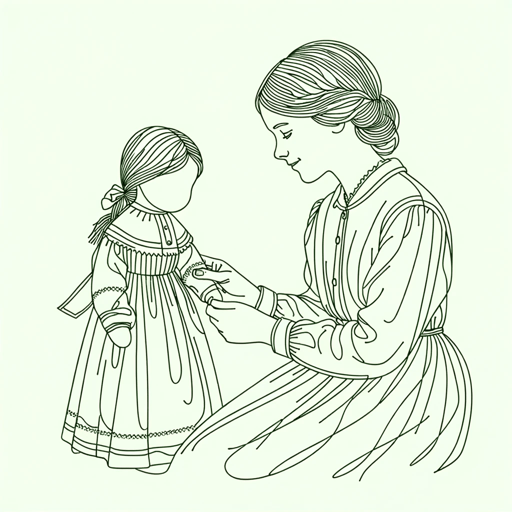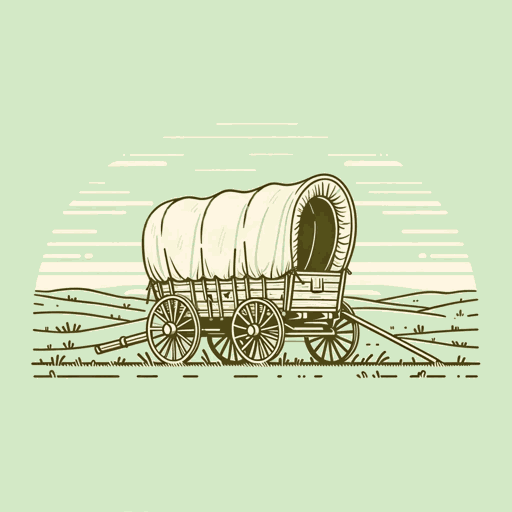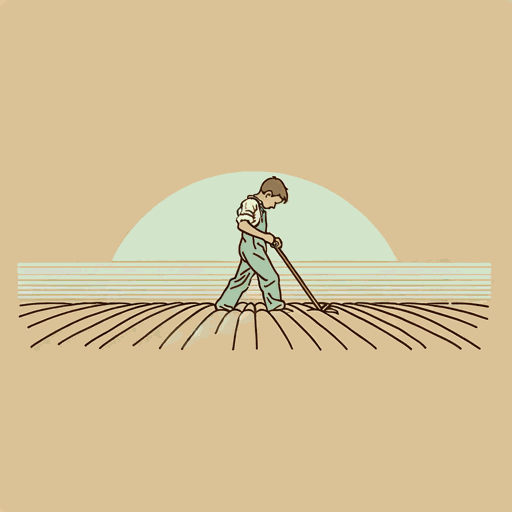57 pages • 1 hour read
Laura Ingalls WilderFarmer Boy
Fiction | Novel | Middle Grade | Published in 1933A modern alternative to SparkNotes and CliffsNotes, SuperSummary offers high-quality Study Guides with detailed chapter summaries and analysis of major themes, characters, and more.
Important Quotes
“He loved horses. There they stood in their roomy box-stalls, clean and sleek and gleaming brown, with long black manes and tails. [...] They all knew Almanzo. Their ears pricked up and their eyes shone softly when they saw him. The three-year-olds came eagerly and thrust their heads out to nuzzle at him. Their noses, prickled with a few stiff hairs, were soft as velvet, and on their foreheads the short, fine hair was silky smooth. Their necks arched proudly, firm and round, and the black manes fell over them like a heavy fringe.”
(Chapter 1, Page 16)
Almanzo’s love for horses is clear in the sensory imagery of these detailed descriptions. Through similes and personification, the horses become characters in the story. The author vividly illustrates them, which reflects Almanzo’s attention to them and makes it easy to imagine why they capture his adoration.
“‘Thank you,’ Almanzo said. Those were the only words he was allowed to speak at table. Children must be seen and not heard. Father and Mother and Mr. Corse could talk, but Royal and Eliza Jane and Alice and Almanzo must not say a word.”
(Chapter 2, Page 25)
To show the culture of the time, this section portrays how children weren’t allowed to speak at the dinner table, in contrast to the modern day. In the 1800s, adults had more privileges than children for social interactions. This required that their children listen to their elders and thus gain respect and admiration for them, fostering an atmosphere of family values and generational knowledge.
“Almanzo took care of his moccasins. Every night he sat by the kitchen stove and rubbed them with tallow. He held them in the heat and rubbed the melting tallow into the leather with the palm of his hand. His moccasins would always be comfortably soft, and keep his feet dry, as long as the leather was well greased, and he didn’t stop rubbing until it would absorb no more tallow.”
(Chapter 3, Page 30)
The theme of hard work and self-sustainability is evident in this depiction of Almanzo caring for his moccasins. Like his family, he values his clothing and treats it preciously, taking time every day to ensure his footwear is usable for as long as possible.
Related Titles
By Laura Ingalls Wilder

By the Shores of Silver Lake
Laura Ingalls Wilder

Little House in the Big Woods
Laura Ingalls Wilder

Little House on the Prairie
Laura Ingalls Wilder

Little Town on the Prairie
Laura Ingalls Wilder

On the Banks of Plum Creek
Laura Ingalls Wilder
Featured Collections
Animals in Literature
View Collection
Books on U.S. History
View Collection
Childhood & Youth
View Collection
Coming-of-Age Journeys
View Collection
Community
View Collection
Family
View Collection
Good & Evil
View Collection
Juvenile Literature
View Collection
Religion & Spirituality
View Collection
Science & Nature
View Collection

